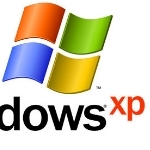
By Bill Pytlovany
If you’re in the market for a new Windows computer you’ll be joining the ranks of x64-bit processor users. It used to be an option but these days 64-bit systems are standard configurations. The infiltration of the market has increased dramatically this year and many programmers like myself are working extra hours to catch up with some of the quirks that arrived with 64-bit systems.
For a long time many people stayed away from 64 bit systems because they feared lack of support for their legacy hardware devices. Those fears have seemed to disappear but many of us have noticed quirks in 64-bit systems that affect regular software. Unfortunately you won’t have much choice and will be encouraged to purchase a machine that comes with the 64-bit version of Windows.
I’m not a 64-bit fan
If I didn’t have to support all my friends with 64 bit machines I wouldn’t have one. When I asked on twitter for a reason we need 64 bit the typical answer was to have more memory.
Local programmer Chris Miller, @anotherlab said, “64bit Windows means you can have more than 4Gb of RAM, which is great for a developer with a mess of apps all running at once.”
Personally, I would be just as happy this year with only 4 GB’s and a fast SSD to use as virtual memory.
The most affected software are low level utilities like my WinPatrol. Most software won’t have serious problems but like many security programs WinPatrol uses low level API’s directly for optimized performance and to catch malware at infiltration points.
Over the last year I’ve continued to distribute a 32-bit version of WinPatrol and worked around various quirks. It’s obvious now that if I want to continue to enhance WinPatrol and create more powerful features I’ll need a 64-bit only version. That will be my primary focus this summer.
Programming 64 Bits
According to Microsoft, “The key is that all of the existing Win32 knowledge you have directly applies to the 64-bit version of Windows, and the majority of your code should compile for the 64-bit platform without changes.”.
Any programmer who hasn’t started 64-bit programming is already way behind. If you thought your biggest challenge going to update your data types you’re sadly mistaken. You’ll find many new changes and promises of maintaining the same code base may be true but only if you’re willing to drop support for XP, W2K and systems with limited performance.
This post is excerpted with Bill’s permission from his blog





